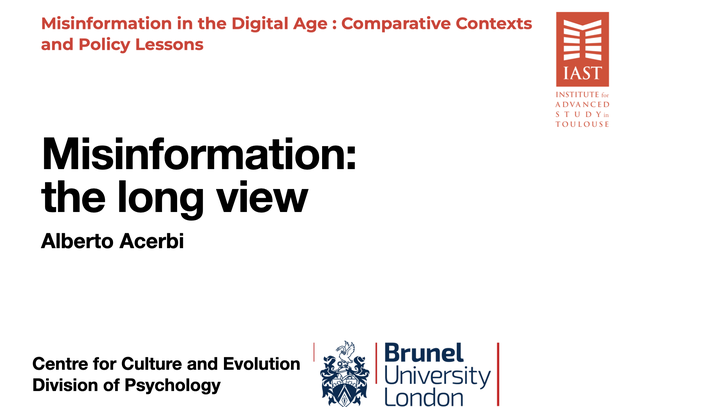Misinformation: the long view

Abstract
In my talk, I will explore how cultural evolution can provide a convenient framework to understand how information is produced, transmitted, and selected in contemporary digital media. Within this perspective, online misinformation is an aspect of a more general phenomenon, where some cultural traits can be successful because their content taps into widespread cognitive biases. Misinformation, being less constrained by reality than true information, can be manufactured to appeal to these cognitive biases. As such, online misinformation can be characterised not as low-quality information that spreads because of the inefficiency of online communication, but as high-quality information that spreads because of its efficiency. The difference is that ‘quality’ does not denote truthfulness but psychological appeal. This is one of the reasons why we should expect some, limited, level of misinformation in any communication system. I will discuss how several estimates suggest indeed a relatively low prevalence of misinformation in social media, and how a broad focus on the overall condition of the online information ecosystem could be more advantageous than a narrower one on misinformation.